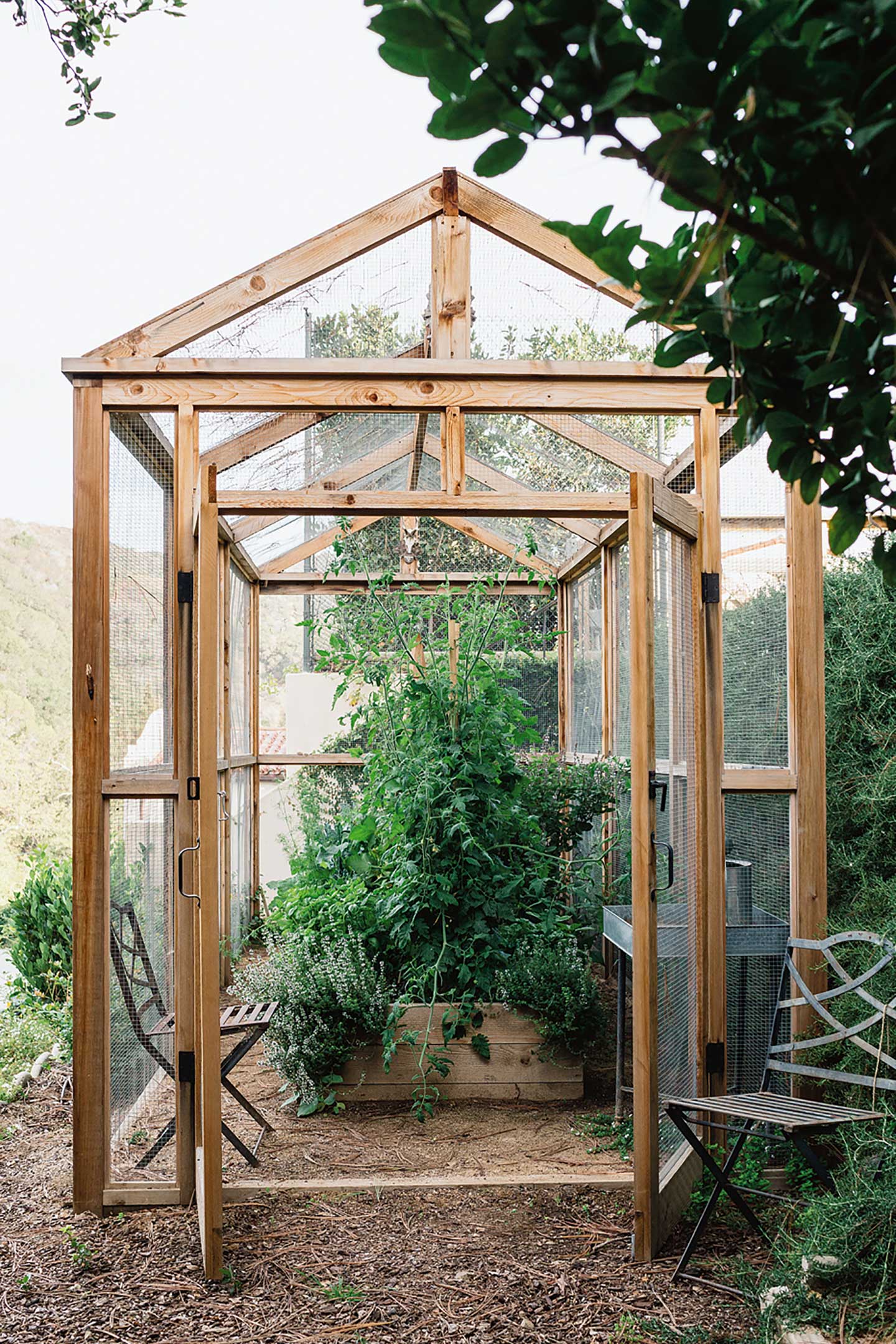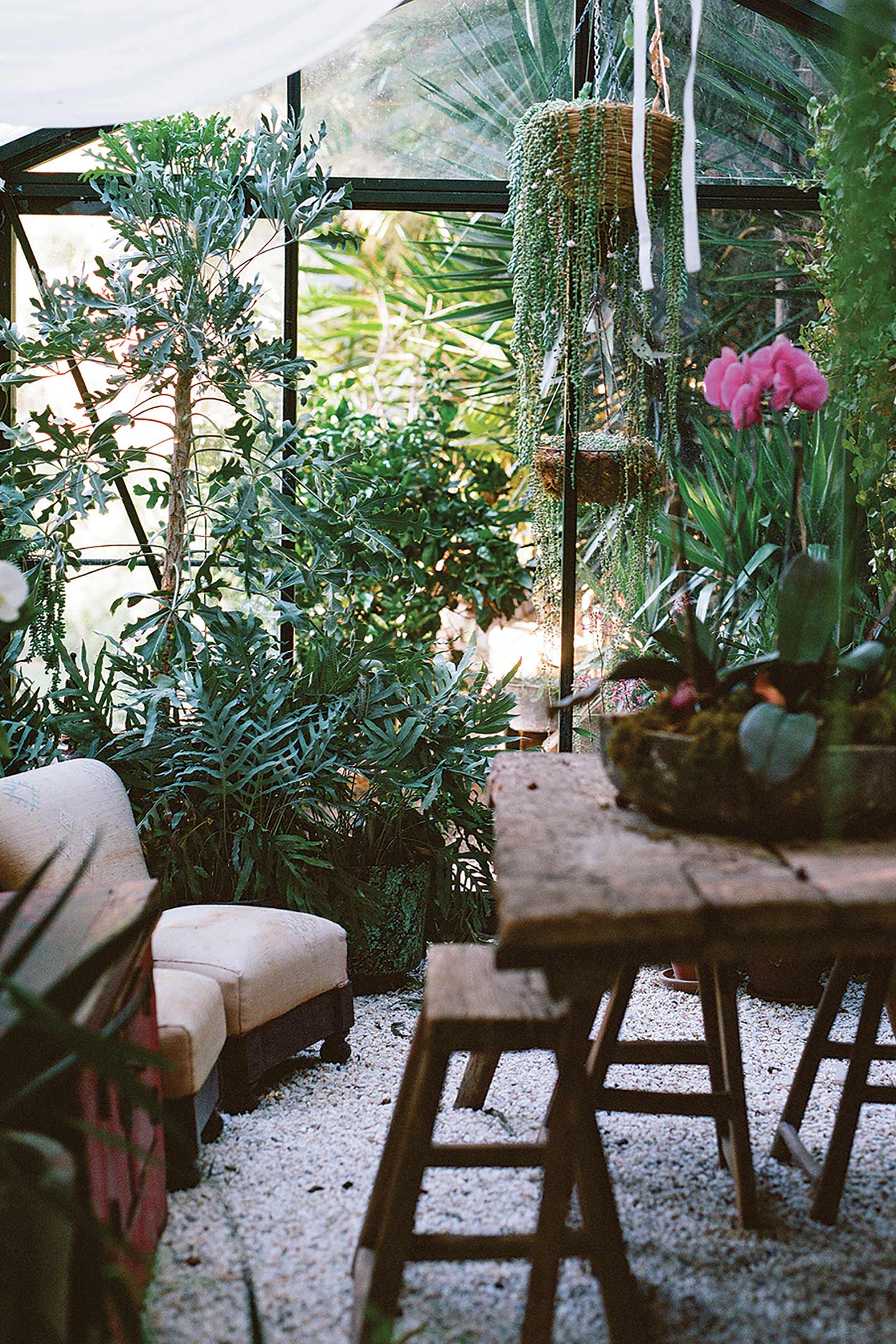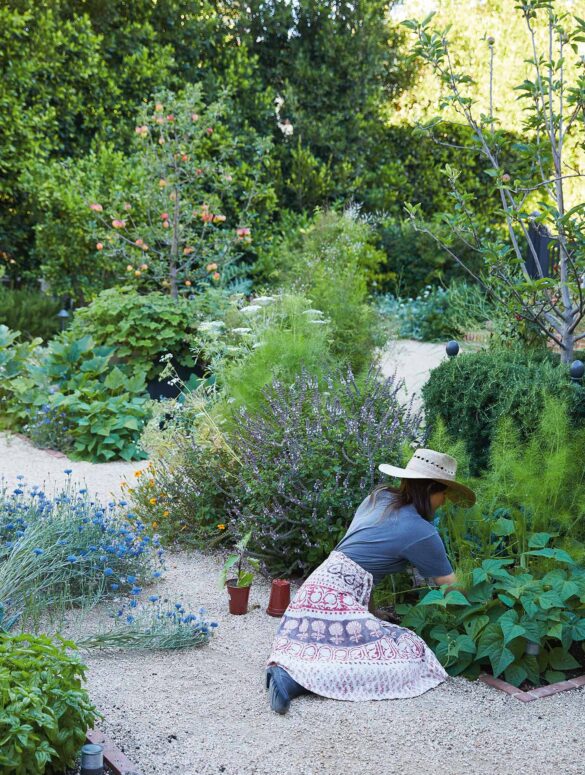Text by Anna Harmon
Images courtesy of Yoshihiro Makino
When a farmer friend asked Lauri Kranz what they were growing at the Edible Gardens LA plot in East Los Angeles, she answered, “Whatever the birds don’t eat.” This means flowers, a range of hearty seasonal crops, and berries climbing the fences. It does not include carrots, since birds devoured all the carrot seeds sown by Lauri and her husband and business partner, writer Dean Kuipers.
Making use of the formerly fallow farmland, which is less than an acre, took time and perseverance. First, Kranz and Kuipers had to rebuild the irrigation, and then they had to overcome the weeds. Next was restoring the soil’s nutrients, but they couldn’t afford to have compost delivered. A friend at T and D Farms saved the day, ordering extra organic compost for them and loading it into the bed of their truck.
For Kranz, farmers have served as inspiration, resource, and community since she was merely a curious parent wondering how to best grow a garden at her son’s school more than a decade ago. She began quizzing farmers over handfuls of produce at Santa Monica and Hollywood farmers markets, and then eventually at farms and over dinners. She tested their advice and knowledge at her Hollywood home and at the garden she established for her son’s school. “They taught me how to grow well, how to grow organically, how to grow sustainably,” she says, “and I carried their lessons with me for all these years in all the gardens I’ve ever done.”


Her business, Edible Gardens LA, sprouted from her school volunteer work. “Once I started my younger son’s school’s garden, parents would say, ‘Would you help me with a garden?’” Planting a garden with one family led to inquiries from friends of the family about starting one of their own.
Kranz is known for cultivating gardens with a wild aesthetic. “I don’t like everything in perfect rows,” she says. Between the broccoli you might find borage flowers, and she purposefully lets plants like cilantro and fennel go to seed. There are wildflowers and poppies amid herbs and vegetables. “Flowers are grown in the gardens I create because they’re so important for the overall health of the garden,” she explains. Her client list has included celebrities Katy Perry and Maya Rudolph and chefs Suzanne Goin and David Lentz.
But when the pandemic began, Kranz was keenly aware of the hits taken by local restaurants, and in turn, by the farmers who supplied the restaurants and farmers markets. Overnight, she pivoted from planting and maintaining landscapes and gardens to figuring out how to get food to people at home.

“We called farmers and said, How are you? What’s happening with the food?” she says. In some cases, they were planning on turning crops back into the soil. She offered to buy their produce with the intent to start an organic produce delivery service. The first Edible Gardens LA farm box delivery went out in March 2020 and was fewer than 10 orders. By January 2021, more than 3,500 people had signed up.
A few farms she sources from consistently are Schaner Farms, Flora Bella Farms, and Weiser Family Farms, all operated by farmers whom Kranz has learned from over the years. Box offerings have expanded to include an optional weekly book recommended by the cookbook and culinary shop Now Serving, recipes from chefs like Goin and Lentz, and products from local businesses like Wild Terra.
After the pandemic clears in L.A., Kranz expects to resume her garden work while also continuing the farm boxes with her husband. Already, the typical workday for Kranz and Kuipers spans 4 a.m. to 7 p.m., after which they have family dinner. Their meals, of course, often feature locally grown produce. One even included a carrot—the only one that survived the bird feast at their farm, which they harvested and washed “like it was the most special carrot on earth,” she remembers. “It was very sweet and wonderful.”
Laure Kranz’s Tips for Home Gardens
“Take inventory environmentally about what’s going on,” Kranz says. “Whether you’re a beginner gardener or more advanced gardener, it all starts with the place.”
Sun
In L.A. at least, you’ll want to locate your garden wherever receives the most hours of light per day. “Sometimes it’s not what you imagine,” she says. To determine if the area you have in mind is the right one, you can do a sun study, taking pictures of the spot every two hours from 8 a.m. to 4 p.m. A sun study can also help you figure out why a formerly flourishing garden is struggling—for instance, revealing that a tree has begun to block the sun.
Soil
“Compost is all our best friends,” Kranz says. Even if you start a container garden with rich soil and compost, it will require additional nutrients the next season.

Water
“Just like how we’re going to decide how to dress for the weather,” Kranz says, “we have to think about the garden.” If it was a hot day, plants may need more water.
Season
Understand what grows in what season. “It’s hard to grow leafy greens in hot summer, and it won’t taste like it does in the winter,” Kranz says. Summer is a time for beans (other than fava), tomatoes, squash, melons, peppers, okra, and corn.
Polinate
Grow flowers with your vegetables, especially pollinator-friendly plants like poppies and cosmos. (But don’t forget that flowers are seasonal too.) Learn more in Kranz’s 2019 book, A Garden Can Be Anywhere.


